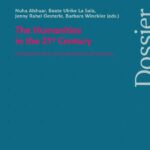When Henry Kissinger once queried the Chinese Premier Zhou En Lai in 1971 for his views on the consequences of the French Revolution, Zhou famously respond, “It is too early to tell”. In other words, 180 years notwithstanding, Zhou’s point was that the consequences of social revolutions do not crystallise until much later.
Academics who specialise in revolutions and Middle East studies are often fond of quoting the Zhou lesson yet are quick to omit social media from the discourse explaining the recent revolutions in Tunisia and Egypt. Since January, I have attended countless academic seminars discussing the uprisings where specialists are downplaying social media to such an extent as to make it inconsequential. You know you are in for the long haul when a speaker remarks smugly that Facebook did as much for Egypt as the fax machine did for the fall of the Berlin wall.
The line goes something like this: “The revolutions of the French, the Russians, the Iranians, are proof that you do not need social media”. This argument has been repeated to me ad nauseum. Moreover, the critics are engaged in the logical fallacy they often warn against: argumentum ad antiquitatem, “appeal to tradition”, that is to say, because it happened in this manner in the past, it has to be correct.
To be clear, revolutions do have common underpinnings: rising food prices, high unemployment, growing rich-poor divide, rampant corruption, elite unaccountability and so forth. This holds true for Tunisia and Egypt, just like it did for the events of 1789, 1917, and 1979, respectively. Social media is not an agent of change; people are.
However, what social media did do in the Arab world, particularly Tunisia and Egypt, was to help ignite, galvanise, mobilise and globalise the uprisings in such a short space of time. Social media was instrumental to the uprisings, even more so than Khomeni’s cassette tapes smuggled into the Shah’s Iran to spread revolutionary messages.
The topic was brought up one evening over dinner with a respected academic. He dismissed social media’s role vehemently, and backed it up by two facts: first, the Egyptian protesters who increased on the streets despite the internet being cut off in Egypt from 27 January to 2 February 2011, and second, that only 22 per cent of Egyptians have internet, and not all of that figure have Facebook or Twitter.
There are three problematic points with this view.
First, the Egyptian youth who stayed home during the uprisings and then were forced offline had no choice but to go out and protest. The regime had instantly resolved the Egyptian youths’ internet addiction and thus the protests now became a conduit to express youth frustration at the censorship move. The tactic had backfired.
Second, for the families who were keeping up to date with protesting relatives via status updates and mobile phone, the termination of these services, meant that, in some cases, whole Egyptian families moved to be with their relatives in Tahrir Square to ensure they were safe.
Third, critics are right to point out that internet usage stands at a mere 22 percent in Egypt. Yet internet users are concentrated in the gravity centres of Cairo and Alexandria, where any sort of activism would have the most impact.
What can be ascertained is that social media played a critical role in the lead up to the 25 January uprisings, continued the “ignite, galvanise and mobilise” phase, and then facilitated globalising the uprising. Following the start of the protests, the timeless word of mouth became a powerful medium, and momentum took care of the rest.
The critics are not without some sound foundation, but they do themselves no justice by trivialising the impact of technology.
I would not go as far suggesting that because ‘Facebook’ and ‘Twitter’ graffiti appeared around Tahrir Square and terms like “Facebook Revolution” and “Egypt 2.0” were adopted by the Egyptian youth should debunk anti-social media claims. But I have to stress this: perceptions shape reality. Egyptians believed social media was important, that it inadvertently governed their activities on the ground. All of a sudden, post-Mubarak, a spring of Facebook based political groups have sprung up all vying for a role in shaping Egypt’s future.
A Norwegian professor once told me that to measure a country’s mood, listen to their jokes. Egypt has no shortage of jokes, but the one that has made the most rounds is this: Mubarak dies and meets with former Egyptian presidents Nasser and Sadat. They asked him: “How did the Egyptians kill you?” By poison, like Nasser?, By gun, like Sadat?’. Mubarak said, ‘no, they killed me by Facebook.'”In some respects, I cannot blame the critical elements. The Doubting Thomases of scholarship have written a vast amount of academic literature on the Middle East and revolutions. Then comes the Wael Ghonims’ and “kids” who threaten to overturn their paradigms.
The Arab uprisings have jolted the political science and Middle East departments of universities. In one stroke, a swath of books and journal articles on the Arab world became obsolete overnight. To further undermine their standings, many academics are on record for stating that Egypt will not go down the same path as Tunisia following the ousting of its dictator Zine El Abidine Ben Ali on 15 January 2011. They all rehearsed it from the same script: Egypt does not have a large middle class like Tunisia, Egypt is highly illiterate, Mubarak has a complex and entrenched security apparatus. Yet they never factored that things look quite different from the streets of Tunis, Cairo and Alexandria.
The subtext of this piece raises the question; would the same intensity of the uprisings have happened in Tunisia and Egypt in the absence of social media? It is too early to tell.
This article was published as “Was Mubarak Killed by Facebook?” at Online Opinion






